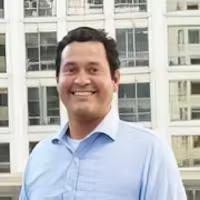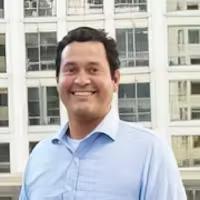Explore sustainable infrastructure's role in achieving Paris Agreement goals and sustainable development.
Explore sustainable infrastructure's role in achieving Paris Agreement goals and sustainable development.
This course cannot be purchased separately - to access the complete learning experience, graded assignments, and earn certificates, you'll need to enroll in the full Sustainable Infrastructure Specialization program. You can audit this specific course for free to explore the content, which includes access to course materials and lectures. This allows you to learn at your own pace without any financial commitment.
Instructors:
English
Español
What you'll learn
Understand sustainable infrastructure's role in global development goals
Analyze infrastructure's contribution to Paris Agreement objectives
Implement sustainability principles throughout project lifecycles
Evaluate private sector integration in infrastructure development
Assess economic and social benefits of sustainable projects
Skills you'll gain
This course includes:
0.6 Hours PreRecorded video
4 assignments
Access on Mobile, Tablet, Desktop
FullTime access
Shareable certificate
Closed caption
Get a Completion Certificate
Share your certificate with prospective employers and your professional network on LinkedIn.
Created by
Provided by

Top companies offer this course to their employees
Top companies provide this course to enhance their employees' skills, ensuring they excel in handling complex projects and drive organizational success.





There are 2 modules in this course
This comprehensive course explores the fundamental concepts of sustainable infrastructure and its critical role in economic recovery and achieving global sustainability goals. Students learn about the IDB sustainable infrastructure framework, project lifecycle sustainability, and private sector integration. The curriculum covers the relationship between infrastructure projects and the Paris Agreement goals, while examining global challenges and economic recovery strategies through sustainable development.
Start Here
Module 1 · 3 Hours to complete
Hands on activity and Graded Quiz
Module 2 · 2 Hours to complete
Fee Structure
Instructors
Lead Climate Change Specialist at the Climate Change Division of the Inter-American Development Bank
Alfred has over 15 years of experience in his field and currently serves as the climate focal point for the IDB’s Infrastructure Department. In this role, he provides technical guidance to project teams on incorporating climate change and sustainable infrastructure into development operations. Alfred represents the IDB in the MDB Working Group on Accounting for Climate Change Adaptation Financing, having chaired it from 2018 to 2020. He has led or co-led at least 50 operations that significantly contribute to the IDB Group’s financial objectives regarding climate change. Additionally, he has authored and co-authored numerous technical publications focused on adaptation, climate resilience, and greenhouse gas mitigation, particularly in the water, transport, and energy sectors. Over the past decade, Alfred has concentrated much of his work on water resources and climate issues in the LAC region, leading critical studies in this area. Before joining the IDB, he worked as a consultant in the Sustainable Development Department of the World Bank’s Latin American Region. Alfred holds a degree in Mechanical Engineering from the Universidad del Norte in Colombia, as well as a Master’s in Computational Mechanics of Materials and Structures from Universität Stuttgart and a Master’s in Environmental Management and Planning from Johns Hopkins University.
Advisor to the President at the Inter-American Development Bank
María Cecilia Ramirez serves as an advisor to the President of the Inter-American Development Bank (IDB), where she has played a pivotal role in advancing infrastructure and energy projects. Previously, she supervised the bank's public infrastructure loan portfolio and led the Sustainable Infrastructure Technical Working Group. With a strong academic background, she holds a degree in Economics from the Central University of Venezuela, a Master's in Economic Theory with a specialization in International Trade from the Paris School of Economics, and a Master's in Public Administration from Columbia University, focusing on Economic and Political Development.In addition to her advisory role, María Cecilia has worked as an economic analyst at the Center for Global Development in Washington, D.C., and has experience in both public and private sectors in Venezuela. She teaches courses on Coursera, including "Dimensions of Sustainable Infrastructure in a Project" and "Sustainable Infrastructure Project Financing," aimed at equipping learners with essential skills for developing sustainable infrastructure initiatives. Through her expertise, she contributes significantly to promoting sustainable development practices within the region.
Testimonials
Testimonials and success stories are a testament to the quality of this program and its impact on your career and learning journey. Be the first to help others make an informed decision by sharing your review of the course.
Frequently asked questions
Below are some of the most commonly asked questions about this course. We aim to provide clear and concise answers to help you better understand the course content, structure, and any other relevant information. If you have any additional questions or if your question is not listed here, please don't hesitate to reach out to our support team for further assistance.





